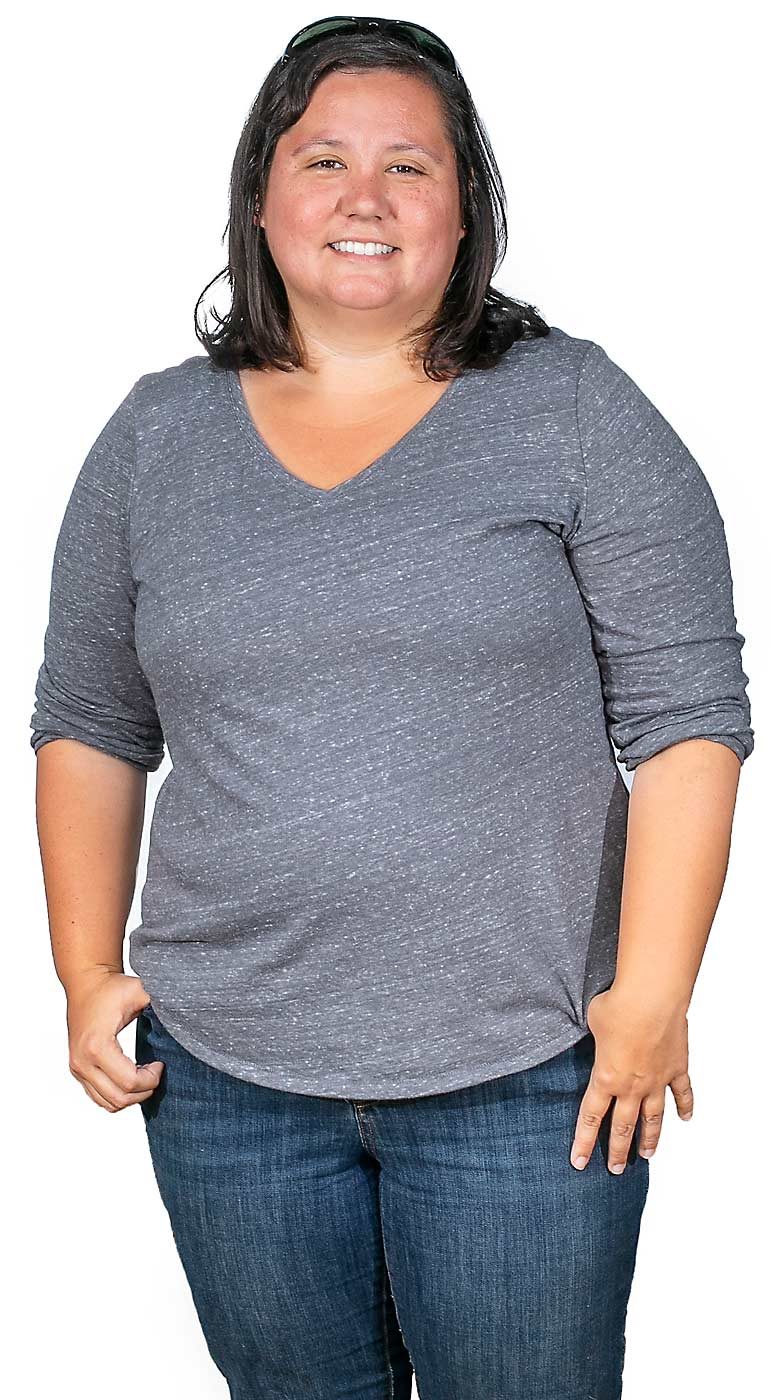family background/Lesley graduated from Western Oregon University with a teaching degree and taught for 10 years. She then returned to the family pear farm in 2016 to work alongside her parents, Jacquie Harrison and Gary Tamura.
age/35
grower/Hood River, Oregon
crops/Pears
business/Tamura Orchards Inc.
Why did you switch from teaching?
I love the farming environment. When I was growing up, my brother, Sean, and I spent a lot of time out in the orchard with Dad doing little jobs like putting bin tags on during harvest to loading bins.
It wasn’t just one specific thing that made me think I should come back, but I did want to see the farm continue with my family. It’s a lifestyle rather than a job.
I get up in the morning and do my job and then come home to enjoy family, whereas with teaching it was just constant work. Whether it was at school or at home, on weekends or holidays, there was always work.
Farming is different where it does allow time for you to enjoy yourself while getting work done.
What did you do first after returning?
I started out on the business side, from the accounting and paperwork part of the farm. Coming from teaching, doing paperwork was one of my strengths.
Doing payroll was my first job back and then I started taking over our Global Gap programs and did the H-2A paperwork. The biggest challenge was learning how to operate the farm. Growing up, I wasn’t picking or driving tractor.
Coming back, I knew enough about the seasonal jobs we need to do through the year, but I didn’t know the day-to-day work. I basically had to learn those things from scratch.
I had to learn little-by-little as they came up. I learned that if I focused on all of the things I didn’t know about the farm at once, it was overwhelming.
What challenges do you have in the Hood River area?
Hood River has changed a lot over the years, where it once was very, very rural and agriculturally based. It still has some of those components today, but it’s become one of the top tourist destination places to visit.
With the community changing and modernizing, the expense of living and operating an agricultural business has increased.
What do you look forward to in the future?
I look forward to the changes in the industry. Change is constant and I’ve learned it’s something you’ve just got to roll with — you can’t fight it. I believe our industry is due for some changes and I’m excited to be part of that.
I want to look at ways to improve. For instance, with labor, finding enough people to do the work we need to have done.
It’s getting harder and harder every year to find people who will work in pruning, thinning and picking. We do have programs such as H-2A to help, but it doesn’t seem like this problem is getting better.
We need to find ways to be more efficient with the labor we have, and it will make us stronger in the long run.
To do that, it may require investing in equipment that allows us to work faster, or machines to help plant trees.
What would you tell young growers?
Seek out people who know their stuff. There’s a lot to learn if you want to get into growing pears.
There’s a million little things and a hundred thousand big things to know.
Ultimately, I think one of the most important tasks to do right away is to seek out experts in their field and go to them every time you have questions.
It used to be that growers were taught to be a jack of all trades. I think the attitude has shifted a bit where some farmers realize, ‘I can’t do it all. I cannot be enough of an expert in everything to do things well.’
So, you need to find people to build your team. I have a great team of people that I can go to when I have problems, challenges or questions.
What did you learn from your family?
My father wants to do the best job he can do on the farm. For him, that means doing everything we can to maintain all aspects of the orchard.
For instance, our tractors are 30-something years old, but they look pretty new because he makes sure they are serviced and clean. It’s about keeping machinery intact so we can continue to use it.
We’re only a 42-acre farm, not 100 or 300 acres like some of the farms in our area, so for us it’s about maintaining the things we do have.







I don’t know how I came across this video but Lesley Tamura was the best 6th grade teacher I had 😊